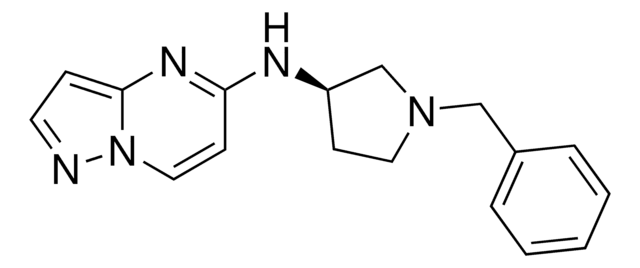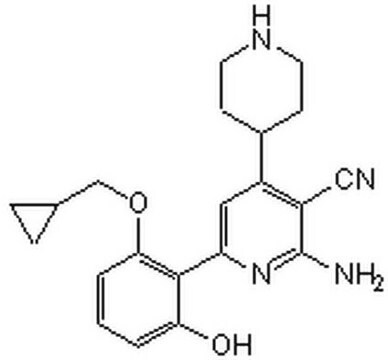407707
PhosphoDetect Anti-Insulin Receptor (pTyr1162/1163) Rabbit pAb
liquid, Calbiochem®
About This Item
Recommended Products
biological source
rabbit
Quality Level
antibody product type
primary antibodies
clone
polyclonal
form
liquid
contains
≤0.1% sodium azide as preservative
species reactivity
human
manufacturer/tradename
Calbiochem®
storage condition
OK to freeze
avoid repeated freeze/thaw cycles
isotype
IgG
shipped in
wet ice
storage temp.
−70°C
target post-translational modification
phosphorylation (pTyr1162/pTyr1163)
Gene Information
human ... INSR(3643)
General description
Immunogen
Application
Immunoblotting (1:1000)
Immunocytochemistry (see comments)
Warning
Reconstitution
Other Notes
Ottensmeyer, F.P., et al. 2000. Biochemistry39, 12103.
Virkamaki, A., et al. 1999. J. Clin. Invest.103, 931.
Schmid, E., at al. 1998. FASEB J.12, 863.
Hari, J. and Roth, R.A. 1987. J. Biol. Chem.262, 15341.
Morgan, D.O., et al. 1986. Proc. Natl. Acad. Sci. USA83, 328.
White, M.F. and Kahn, C.R. 1986. The Enzymes17, 247.
Ebina, Y., et al. 1985. Cell40, 747.
Ganguly, S., et al. 1985. Current Topics in Cellular Regulation27, 83.
Grunberger, G., et al. 1984. Science223, 932.
Legal Information
Not finding the right product?
Try our Product Selector Tool.
Storage Class Code
10 - Combustible liquids
WGK
WGK 1
Flash Point(F)
Not applicable
Flash Point(C)
Not applicable
Certificates of Analysis (COA)
Search for Certificates of Analysis (COA) by entering the products Lot/Batch Number. Lot and Batch Numbers can be found on a product’s label following the words ‘Lot’ or ‘Batch’.
Already Own This Product?
Find documentation for the products that you have recently purchased in the Document Library.
Our team of scientists has experience in all areas of research including Life Science, Material Science, Chemical Synthesis, Chromatography, Analytical and many others.
Contact Technical Service








